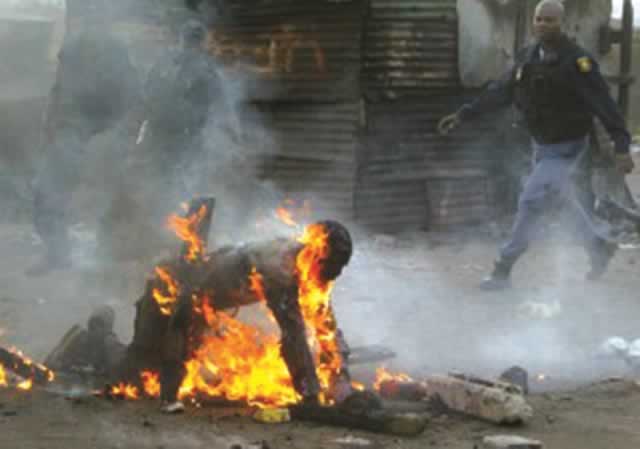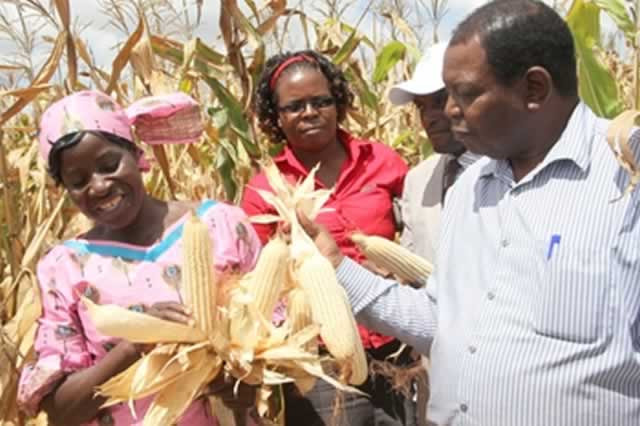The grass is not always greener yonder


In Africa, especially in East Africa, many workers – mostly male – embark on long journeys on foot to the south in search of greener pastures or better living conditions, but often end up as victims of xenophobia
John Manzongo At the Workplace
There is a strong belief among many workers that there are always greener pastures in neighbouring countries and faraway lands, a situation which has led to high migration flows in and out of certain countries.
One thing that workers have failed to recognise is greener pastures are everywhere but one needs to be skilled and equipped for the job, whether it is local or abroad.
Many workers have ended up in a quandary when they arrive in the country of choice only to realise that it is not as rosy as they were made to believe.
The grass is not always greener yonder.
Labour migration has come to be a global phenomenon and the reasons for migrating are generally the same, they range from looking for better salaries, better living conditions and better life expectancy.
This has forced many countries to start considering multilateral agreements to protect their job markets or to lure migrant workers.
The most important thing that workers need to be aware of is that it not rosy out there, it is cold and there is no better place to be than home.
For example, when a worker decides to migrate to find a job in another country, the truth is that most of migrant workers will not be accorded the same basic social rights as nationals of that country. There is always an element of exploitation.
There also seems to have been an influx of dubious recruitment agencies who promise migrant workers honey and milk in destination countries. Some workers become so attracted to the promises and surrender their fate to the agencies that once in that country confiscate the prospective workers’ travelling documents as surety that they will reimburse the money they have spent on their travel fares, agents’ fees and permits.
International Labour Organisation (ILO) research has shown that both skilled and unskilled migrant workers are at high risk of being engaged in forced and unpaid labour.
Most of the time unskilled workers will not have the financial resources to pay for their travel abroad and the dubious recruitment agents then promise to make the whole task easy by paying for all expenses including airfares in some instances or even helping migrant workers enter certain countries illegally through human trafficking syndicates.
Once in the country of destination these agents then threaten the migrant workers, forcing them to surrender their passports or identity documents as surety for payment of the expenses.
Thus the worker becomes the personal property of the agencies which then can do whatever they want with them.
Some highly skilled workers are also finding themselves being held captive and abused by their employers in the countries of destination because they tend to take some things for granted. Before migrating to work in foreign countries workers must make sure that they know if the country they are going to is a signatory to, for example, ILO conventions which guarantee them social rights or social protection.
There are countries which are well known for abusing workers whether skilled or unskilled and such countries, according to the ILO research, have laws which prohibit a worker from leaving the country without a letter of authorisation from his employer.
For example, a migrant worker might feel the working conditions are no longer conducive for him or her and decide to return to their home country.
Upon arrival at the airport or immigration points in such countries he or she will be asked to produce a letter of release by his employer, failure of which he will be returned to that employer for further forced work.
In such cases it therefore means that even if a worker is no longer interested in working, he or she would be forced to work because of the exploitative system.
It is strongly advised that before migrant workers are lured by seemingly lucrative salaries, allowances and benefits they must know the status of the countries they will be planning to migrate to so that they will not end up in forced labour.
On the African continent, especially in East Africa, many workers – mostly male – embark on long journeys on foot to the south in search of greener pastures or better living conditions.
These journeys have seen migrant workers dying, some getting ill due to malnutrition and exhaustion.
The few who manage to complete these journeys, which usually take four to six months to complete, will be total scrap or rendered useless healthwise and they mostly end up in refugee camps in Chipinge, Zimbabwe.
Zimbabwean workers who engage in illegal migration where they mostly do not have proper documents such as passports or work permits always end up being abused.
Some cunning employers in these countries always call the police at the end of the month just before they give migrant workers their wages so that they are deported and they do not pay them their dues.
In some sad instances these workers will be forced to leave their children and families in those countries as they will be caught unawares and never given a chance to explain their migrant status or employment situation.
Some even leave their property and several assets they would have acquired there.
The International Organisation for Migration (IOM), a key strategic partner in Zimbabwe, always plays a crucial role of facilitating and helping desperate migrant workers mostly from South Africa and Botswana.
In 2010 there were 214 million migrants globally.
The IOM also helps with reuniting family members who have lost contact after the breadwinner was hurriedly deported without knowledge of his or her family.







Comments